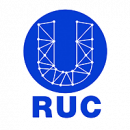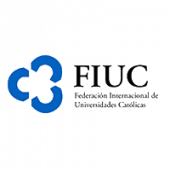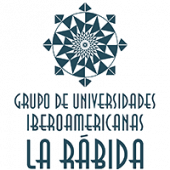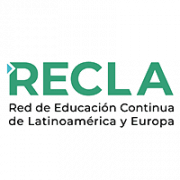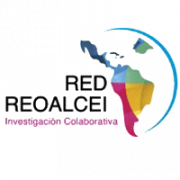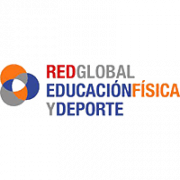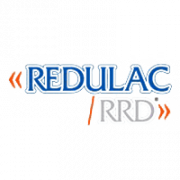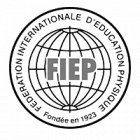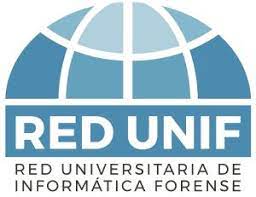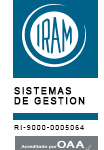Agreements and networks
Learn about our reciprocity agreements and the networks we build with other universities
Networks
ODUCAL
(Organization of Catholic Universities of Latin America and the Caribbean)
Es una asociación de universidades católicas de América Latina y el Caribe vinculada en calidad de Asociación Regional a la Federación Internacional de Universidades Católicas (FIUC).
La finalidad de ODUCAL es contribuir al progreso de la educación superior católica en Latinoamérica. Con este propósito, desarrolla un conjunto de acciones de colaboración orientadas a mejorar la calidad de la oferta educativa y a fortalecer las actividades de investigación y de servicio a la comunidad de las instituciones asociadas. Es función de ODUCAL, también, animar a esas instituciones a perfeccionar la tarea fundamental de buscar la verdad y servir de ámbitos de encuentro de fe y razón.
CRUP
(Council of Rectors of Private Universities)
It is a representation and consultation body whose function is to jointly represent all authorized establishments, program the planning of private university education and coordinate the work with the competent bodies of the Ministry of Education and the Councils of Rectors of the Universities. state and provincial.
FIUC
(Federación Internacional de Universidades Católicas)
This organization’s mission is:
Promote collective reflection among Catholic higher education and research institutions
Promote academic cooperation in the field of research, as well as the assessment and dissemination of research results to decision-making communities
Promote experience and skills exchange among Catholic higher education institutions
Represent Catholic universities in international organizations and associations and collaborate with them in accordance with their institutional priorities
Contribute to the development of Catholic higher education and the affirmation of its specific identity.
It has four main lines of activity: Research, Prospective, Projects and Training.
THE RÁBIDA
It is a group of Ibero-American universities. There, postgraduate, teaching and research training is promoted through scholarships and other student mobility actions.
The priority objective of the La Rábida group of Ibero-American universities is to contribute, maintaining the criteria of high academic quality, to the training of university teachers, scientists and professionals at the postgraduate and doctoral level, attending to the development needs of each country and without abandon the interests of the entire Ibero-American community of nations.
UNIVERSIA
It is the reference university network for Latin America and since its creation it has had the patronage of Banco Santander. It groups 1,341 universities. Its mission is:
To be the largest university cooperation network focused on Latin America, which promotes change and innovation through a platform of products and services for the university community and companies.
Be an international reference for Corporate Social Responsibility with the patronage of Banco Santander.
Act as an agent of change, helping universities to develop shared projects and generate new opportunities for the university community, meeting the demand of the business and institutional environment and with criteria of economic efficiency and profitability.
Lines of action:
Academic projects: knowledge and research, through different initiatives:
Academic publications with universities
Reports and studies on higher education
Information for university students
MOOCS
Bibliographic resources
Innoversia and Meetings of Rectors
University services:
Employment: encourages the first job and professional internships of university students.
Training: identifying training needs of organizations that can be addressed from the university.
Marketing: from online tools that allow you to incorporate university offers.
RECLA
(Continuing Education Network of Latin America and Europe)
It is a non-profit organization, legally established in Colombia since 1997. It contributes by facilitating networking and internationalization, sharing experiences, good practices and providing access to new knowledge, all within a framework of coexistence of people and institutions that ensure powerful long-term ties.
RECLA defines continuing education as an educational modality complementary to the formal system, aimed at any person who, at any time in life, decides to access flexible and updated options for training, updating, specialization or improvement in different areas of knowledge that contribute to the development of their capabilities, their comprehensive training as a person or to respond to the competitive demands of the labor market.
This network establishes and maintains constructive relationships among its members and, in turn, with other similar institutions and associations in America, Europe and other regions of the world. The purpose of these alliances is to strengthen the network and each of its associates.
Goals
- Generate spaces for debate and reflection around trends, projections, and the future of continuing education
- Strengthen the processes of the continuing education units of its associates
- Promote the design and development of cooperation programs
Permeate the public agenda of higher education of the countries involved in the EC issue.
REOALCEI
(Organizational Studies Research Network in Latin America, the Caribbean and Ibero-America)
It is a network made up of university professors and researchers, undergraduate and graduate students, professionals, businessmen and public officials who wish to contribute to the progress of science.
The members of the network consider that scientific and academic research should be opened to society, which is why emphasis is placed on Useful Science that is generated from collaborative intelligence and co-creation among its members, interacting with each other and relating. with social actors and organizations and companies committed to the development of Latin America, the Caribbean and Ibero-America.
An innovative environment is fostered in order to work on integrated projects of strategic interest for the region. In these projects, different disciplines and different countries complement each other. To this end, the following academic and scientific cooperation activities are carried out:
- Organization of academic and scientific events
- Formulation and execution of integrated projects of strategic interest for the region
- Scientific publications (magazines and books)
- Academic advice and consulting for undergraduate and graduate students
- Research stays
- Connectivity through web 2.0
Global Network of Physical Education and Sports
The general objective of the network is to enable the existence of a forum for debate, discussion, contrast of criteria and experiences on Physical Education, School Sports and Physical Activity and Health.
In addition, it is proposed to establish a space for communication between professionals on related topics, exchange ideas that may be at the center of current events, promote technical and scientific enrichment and enable and encourage professional contacts and relationships.
TELESCOPI
This network emerged as a project in a Strategic Management seminar held at the Polytechnic University of Catalonia and convened by CINDA. After three years of coordinated work, the network was permanently established.
The TELESCOPI Network and CINDA coordinate actions to establish synergies and strengthen the participation of the Center’s universities in national observatories of good practices in strategic planning. Each country forms a node that brings together local members.
The formation of the Argentine Node of the Telescopi Network has occurred with the objective of encouraging teamwork. Although we find that each university institution assumes organizational forms with particular characteristics to provide answers to the different problems that their reality raises, it is only from these differences that a space of articulation and coordination can be configured in addition to building ties that They allow us to engage in reflective dialogues both about what is particular to each institution and about what is common in networking.
REDULAC
(Network of university students from Latin America and the Caribbean for the management and reduction of risks of emergencies and disasters)
This network aims to create an open and inclusive academic space where its participants can voluntarily share their contributions in knowledge, experiences, skills, and expertise related to Risk Management, Disaster Reduction, and Climate Change Adaptation, based on the three essential pillars of higher education (teaching, research, and outreach).
This organization seeks to generate dialogue of knowledge for the discussion and development of new tools, strategies, and policies on the subject. It also aims to urge and advocate for the incorporation of the themes of emergency and disaster risk management and reduction into the practices of higher education institutions in Latin America and the Caribbean, both public and private.
The University Network of Latin America and the Caribbean for Disaster Risk Reduction (REDULAC/RRD) Chapter Argentina is composed of working groups from universities in our country that are engaged in research, teaching, and knowledge transfer in the area of Disaster Risk Management (DRM).
The network aims to foster the connection of these university groups to contribute to DRM and to the development of complementary topics such as Environmental Management, Climate Change, Land Use Planning, among others.
Through REDULAC/RRD, Argentina seeks to:
- Consolidate a network of Argentine universities through an organized work strategy.
- Enhance cooperation and exchange links with other Latin American universities and those from around the world.
- Contribute to society and the government sector for DRM through knowledge generation, human resources training, and university transfer.
- Promote the establishment of trust relationships on the continent. The main purpose of the association is to connect members permanently for the development, dissemination, and promotion of academic, cultural, research, and advocacy activities related to Public Relations and Communication in the Latin American context.
ALACAURP
(Latin American Association of University Careers of Public Relations)
Promotes the establishment of relationships of trust on the continent. The main purpose of the association is to link members permanently for the development, dissemination and promotion of academic, cultural, research and promotion activities on topics related to Public Relations and Communication in the Latin American field.
AUIP
(Ibero-American Postgraduate Association)
It is an international non-governmental organization, recognized by UNESCO, whose objective is the promotion and development of postgraduate and doctoral studies in Latin America.
It is currently made up of more than 185 prestigious higher education institutions from Spain, Portugal, Latin America and the Caribbean. This allows UCASAL graduates to access a wide range of academic training abroad.
UNAI
(United Nations Academic Impact) – ONU
The United Nations Academic Impact initiative, or UNAI, is an initiative that aligns higher education institutions with the United Nations to support and contribute to the realization of the objectives and mandates of the United Nations, including the promotion and protection of human rights, access to education, sustainability and conflict resolution.
FIEP
(International Federation of Physical Education)
It is a global non-profit organization that fights for the dissemination of Physical Education. It was founded on July 11, 1923 in the city of Brussels, Belgium, and its objectives include promoting the development of physical, educational, recreational and leisure activities for the training and updating of Physical Education teachers.
(Catholic Consortium for International Higher Education Collaboration)
This is the Catholic Consortium for international collaboration in Higher Education. The following universities are made up of executive members: Australian Catholic University, Katholische Universität Eichstätt-Ingolstadt, Pontificia Universidad Católica de Valparaíso, Sogang University, The Catholic University of America, with UCASAL being a partnership or partner.
UNIF Network
UNIVERSITY FORENSIC COMPUTER NETWORK
It is an inter-institutional organization of an educational, scientific and cultural nature, based in one of the founding institutions of the Network: FASTA University (Faculty of Engineering), National Technological University (Delta Regional Faculty), National University of Córdoba (Faculty of Exact Sciences , Physics and Natural Sciences), Catholic University of Salta (Faculty of Engineering), Defense University (Aeronautical University Institute), Defense University (Army Engineering Faculty) and National University of the Northwest of the province of Buenos Aires (School of Technology)
Representing the UNIF Network, since November 2021, the engineer (CISA) Sergio D. Appendino, professor and researcher at the Faculties of Engineering and of Economics and Administration of UCASAL, has held the presidency.
The National Computer Forensic Conference Info-Conf is held annually within the NETWORK, which in 2022 will be held at the FASTA University in Mar del Plata and in 2023 at our home, UCASAL.
RESEARCH NETWORKS
WITH THE CATHOLIC UNIVERSITY OF COLOMBIA, GABRIELA MISTRAL UNIVERSITY OF CHILE AND UNIVERSITY OF MONTERREY IN MEXICO
This network aims to link researchers from high educational institutions. It was formed by an agreement between the parties.
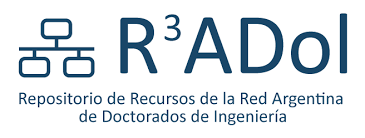
RADoI
(Argentine Engineering Network)
This network was created within the framework of the CONFEDI Postgraduate Commission in October 2017. The main objective of the network is to share academic experiences and promote the creation of doctorates in engineering that favor the construction of knowledge, which are reflected in a innovative contribution for the growth of society and that, preferably, are linked to Social Technological Development Projects (PDTS). The network has the active participation of more than 60 CONFEDI members.
CIIDDI Network
(Ibero-American Network of Universities and Institutes with research in law and computer science)
The CIIDDI Network is a network of universities and institutes in Latin America with research in the interrelation of computing and law. It is currently made up of more than twenty institutions from eighteen countries.
Its mission is to create a meeting and cooperation environment for the joint development of research projects and exchange programs in order to provide solutions, from Information Technology and Law, to the problems of society in general.
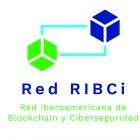
RIBCi Network
(Ibero-American Blockhain and Cybersecurity Network)
This network has the objective of contributing to inclusive and sustainable industrialization by promoting innovation through the application of Blockchain and Cybersecurity technologies, within solid and equitable regulatory frameworks, for the strengthening of human capital and the transfer to strategic and government productive sectors. in Ibero-American countries.
Although in the academic field there are various investigations on the application of blockchain and cybersecurity in various sectors, when we focus on justice and the agri-food value chain, we find some studies referring to the themes, but to date and At least in our countries, these investigations remain at the level of analysis and exploration without having reached the implementation of a large-scale application.
In this sense, we consider that the proposal presented by this Network is innovative for the countries of the Ibero-American region.


